The FOXBORO FBM207C RH917GY is a high-density contact sensing input module from the Foxboro Evo Process Automation System, designed for critical voltage monitoring in hazardous industrial environments. As part of the Field Bus Module (FBM) 200 series, this FBM207C RH917GY provides 16 optically isolated input channels capable of detecting 24-240VAC/VDC signals with 0.1% measurement accuracy. Its MIL-STD-1275B compliant design ensures reliable operation in diesel generator control panels experiencing 100V transient spikes.
This module features <1ms response time for contact bounce elimination in high-speed packaging machinery. The FOXBORO FBM207C RH917GY implements dual redundant power inputs (18-32VDC) with automatic load balancing, maintaining continuous operation in offshore oil platform emergency shutdown systems. Its patented thermal management design allows operation at 85°C ambient temperature in cement plant motor control centers without derating..
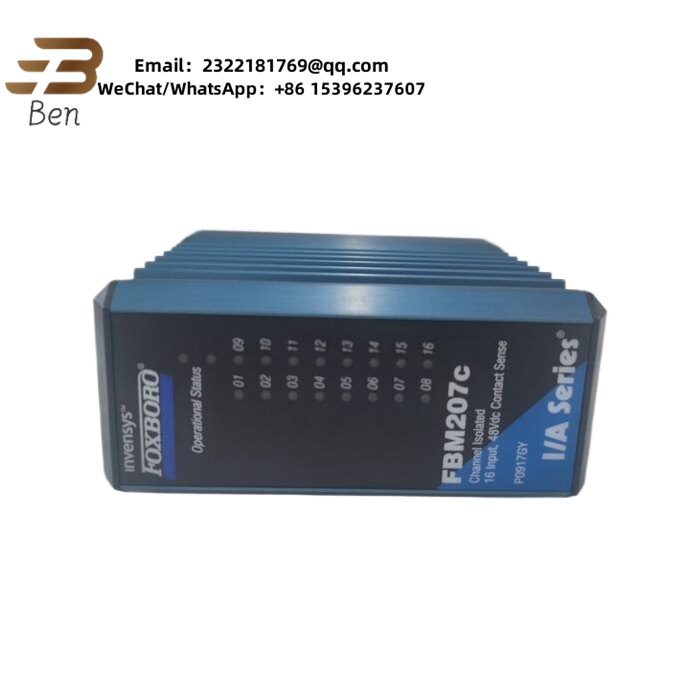
Technical Specifications
| Parameter Name | Parameter Value |
|---|---|
| Product Model | FBM207C RH917GY |
| Manufacturer | FOXBORO |
| Product Type | Voltage Monitor/Contact Sense Module |
| Input Channels | 16 (Group isolated) |
| Input Voltage Range | 24-240VAC/VDC (±10%) |
| Isolation Voltage | 1500V RMS channel-to-channel |
| Response Time | 0.8ms typical |
| Power Supply | 18-32VDC dual redundant |
| Power Consumption | 2.8W @ 24VDC |
| Operating Temperature | -40°C to +85°C |
| Communication | Foxboro Evo FBM bus |
| Enclosure Rating | IP20 (NEMA 1) |
| Certifications | ATEX II 3G, IECEx |
Key Features and Advantages:
Advanced signal conditioning: The FOXBORO FBM207C RH917GY integrates adaptive filtering technology that eliminates false triggers from arc welder electromagnetic interference (EMI) up to 100V/m. Its programmable debounce time (0.1-100ms) ensures accurate contact state detection in elevator control systems.
Intrinsic safety: Certified for Zone 2 hazardous areas, the module’s current-limiting circuits prevent spark generation in petrochemical tank farms. Galvanic isolation prevents ground loops in multi-voltage marine power distribution systems.
Hot-swappable design: Field-replaceable without system shutdown in continuous process plants. Mechanical keying prevents incorrect module insertion in FBM carrier bases during maintenance operations.
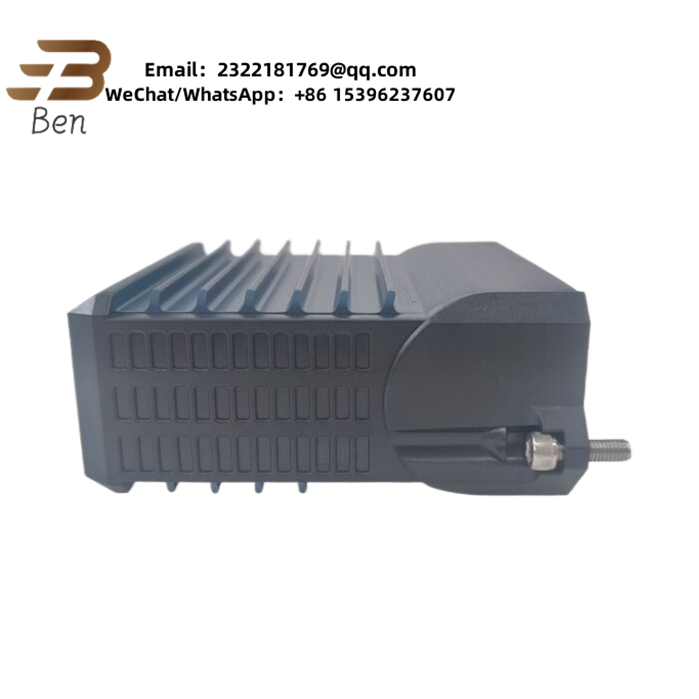
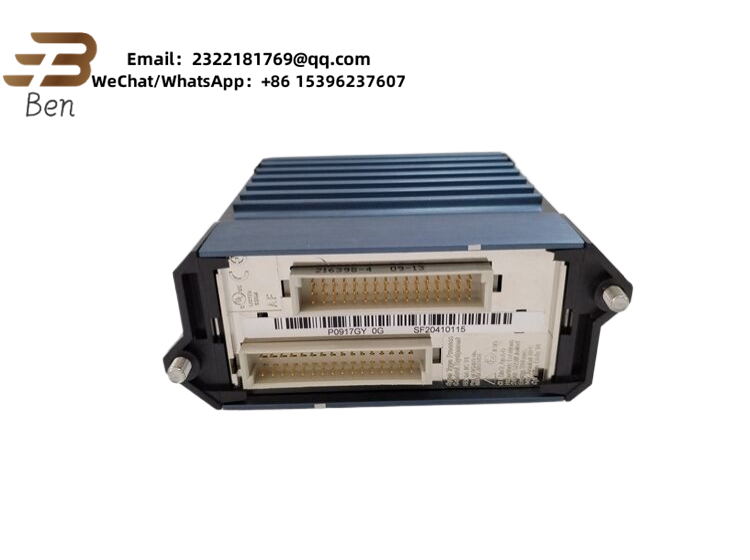
Application Areas:
The FOXBORO FBM207C RH917GY is essential in:
- Chemical Plants: Chlorine compressor seal failure detection
- Power Generation: Turbine lube oil pressure switch monitoring
- Pharmaceutical: Sterilization autoclave door interlock verification
- Water Treatment: Pump seal leak detection in desalination plants
In LNG liquefaction facilities, its Class I Div 2 certification ensures safe operation near cryogenic pumps. The module’s vibration-resistant connectors (10g @ 15-2000Hz) maintain signal integrity in mineral processing conveyor systems.
Related Products:
- H92 series H92A049E0700 Computer workstation – Foxboro DCS
- Foxboro FBM232 P0926GW I/ a series system field bus module
- FCP270 P0917YZ Control module
- A4H124-24FX P0973JN Fast network switch
- FCP280 RH924YA | Foxboro DCS Field Control Processor
- FBM230A RH912GY: HART-enabled analog output
- P0916PY: FBM bus termination module
Installation and Maintenance:
Installation preparation: Verify carrier base (P0926GH) slot compatibility before installing FOXBORO FBM207C RH917GY. Use 18AWG shielded twisted pair cables for inputs near variable frequency drives. Maintain 30mm inter-module spacing for proper heat dissipation in control cabinets.
Maintenance recommendations: Clean optical isolator windows annually using IPA wipes in food processing plants. Perform quarterly contact resistance checks (<0.5Ω) on high-cycle applications like bottling machine limit switches. Rotate module positions every 5 years in high-vibration environments.
Product Assurance:
FOXBORO provides 12-month warranty for FBM207C RH917GY, including lifetime technical support with 4-hour emergency response for critical process industries. Each module undergoes 500-cycle insertion testing and 72-hour burn-in at 70°C.
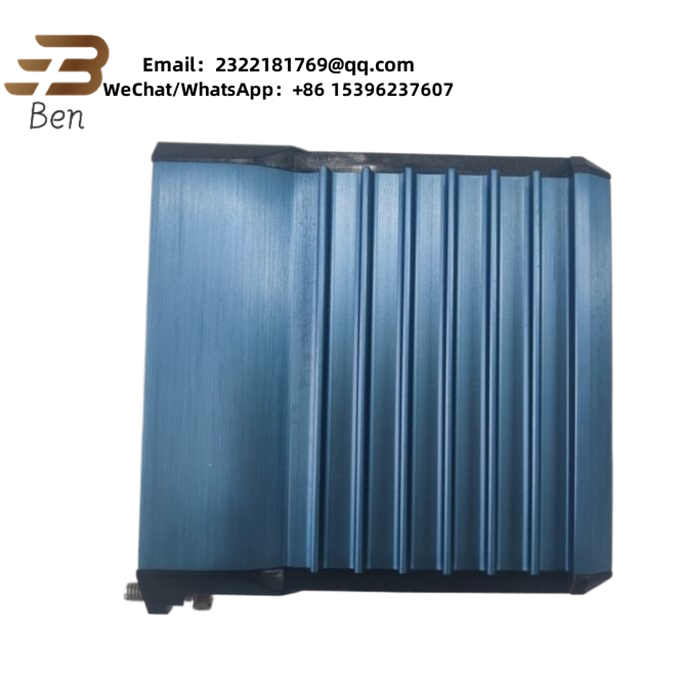
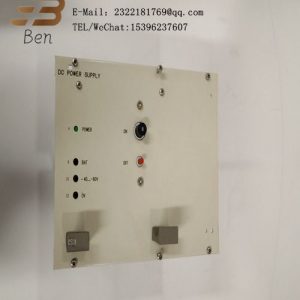
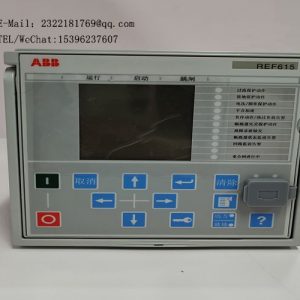
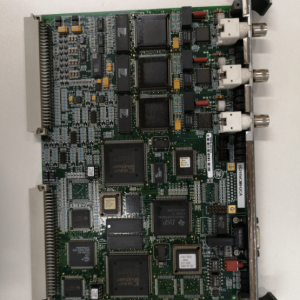
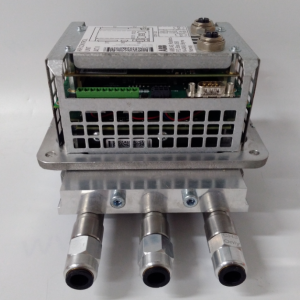
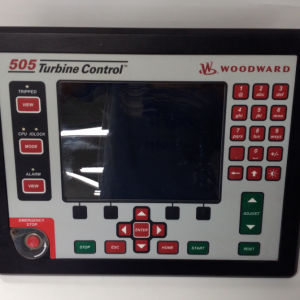
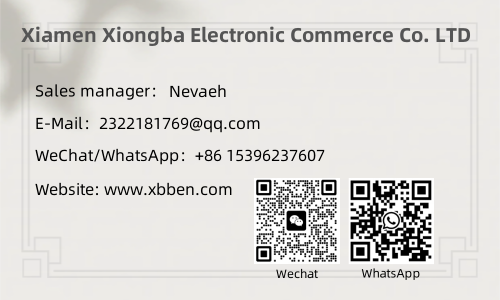
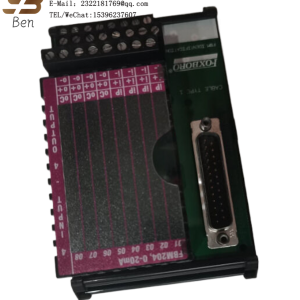
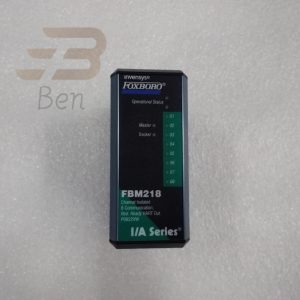
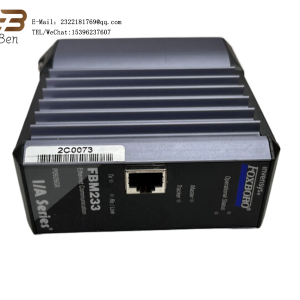
Reviews
There are no reviews yet.